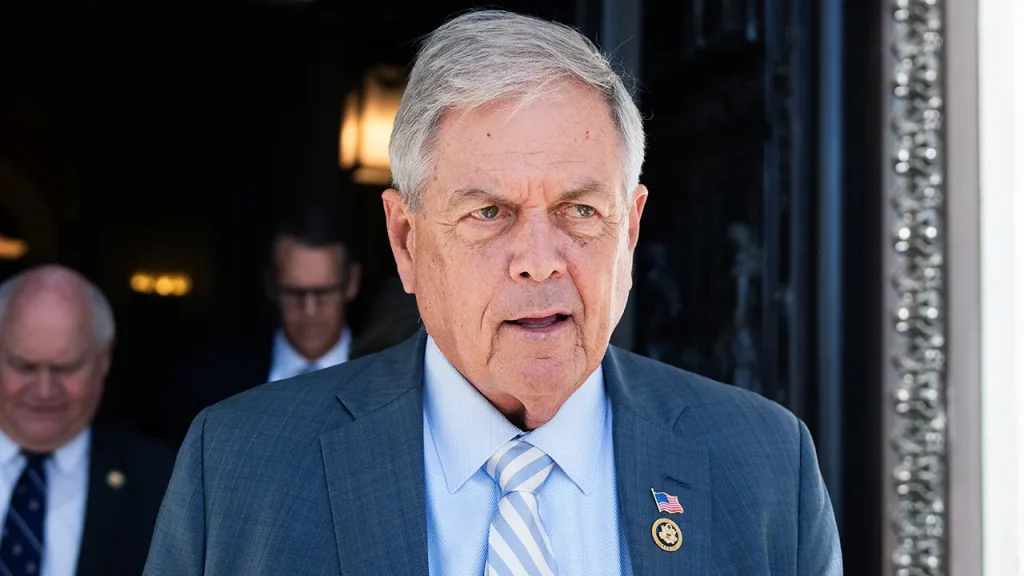Congress Member Proposes Amendment to Halt Pay During Government Shutdowns
In a bold move reflecting a commitment to accountability in governance, Representative Ralph Norman of South Carolina has reintroduced a constitutional amendment that would suspend congressional salaries during government shutdowns. The Republican lawmaker announced the proposal on Tuesday via social media, emphasizing the fundamental unfairness of the current system. “During shutdowns, federal workers are told to ‘do more with less.’ Meanwhile, Congress still cashes paychecks. That’s wrong,” Norman stated on X (formerly Twitter). His amendment would completely eliminate pay for members of Congress during shutdowns, with no possibility of receiving back pay once funding is restored. This straightforward approach sends a clear message: if lawmakers fail to perform their basic duty of keeping the government running, they shouldn’t continue receiving compensation from taxpayers.
The proposal has already garnered support from several Republican colleagues, including Representatives Bob Latta (Ohio), Jack Bergman (Michigan), Eli Crane (Arizona), Cory Mills (Florida), Dusty Johnson (South Dakota), and John Joyce (Pennsylvania). The constitutional amendment would need to clear significant hurdles to become law, requiring approval by two-thirds of both the House and Senate, followed by ratification by three-quarters of state legislatures within seven years. The resolution defines a government shutdown as occurring when “there is a lapse in appropriations for any Federal agency or department as a result of a failure to enact a regular appropriations bill or continuing resolution.” Should the amendment be adopted, it would give Congress the power to enforce these provisions through appropriate legislation.
Norman’s proposal comes at a particularly relevant moment, as the nation faces another partial government shutdown beginning Wednesday due to Congress’s failure to reach a spending agreement by the deadline. The timing underscores the real-world consequences of congressional deadlock, with essential government services potentially disrupted and federal workers facing furloughs or working without immediate pay. “Members of Congress have a constitutional duty to fund the government’s essential functions,” Norman explained in a press release. “If Congress fails to meet that obligation, we should not expect taxpayers to continue paying us for inaction.” He added a compelling comparison to everyday Americans: “No one else in America would get paid for failing to fulfill their duties—Congress should face the same principle.”
The amendment reflects growing frustration among citizens with the recurring pattern of government shutdowns, which have become increasingly common in recent decades as partisan divides deepen. While previous shutdowns have resulted in furloughed federal employees eventually receiving back pay, the fundamental unfairness remains: lawmakers who fail to reach budget agreements continue receiving their salaries without interruption, while government workers and contractors face financial uncertainty. Norman’s proposal would align congressional incentives more closely with their constitutional responsibilities, potentially reducing the likelihood of shutdowns by making them personally costly to the very individuals with the power to prevent them.
Beyond the immediate proposal, Norman’s amendment speaks to broader concerns about accountability in government and the growing disconnect between elected officials and the citizens they serve. The congressman, who is currently running for governor of South Carolina, appears to be positioning himself as a champion of responsible governance and fiscal accountability. By pushing for consequences when Congress fails to perform its basic duties, Norman is tapping into widespread public sentiment that elected officials should be held to at least the same standards as ordinary workers. Polls consistently show that government shutdowns are unpopular across the political spectrum, with voters generally preferring compromise to ideological standoffs that disrupt government operations.
As partisan blame continues to be exchanged between Republicans and Democrats over the imminent shutdown, Norman’s proposal offers a rare point of potential agreement: that those responsible for the impasse should share in its consequences. While the amendment faces significant hurdles to adoption, it highlights an important principle that resonates beyond partisan divides. In a political climate where accountability often seems in short supply, the simple idea that lawmakers shouldn’t be paid when they fail to keep the government running strikes many Americans as common sense. Whether this particular amendment advances or not, it contributes to an important national conversation about the responsibilities of elected officials and the standards to which they should be held.


